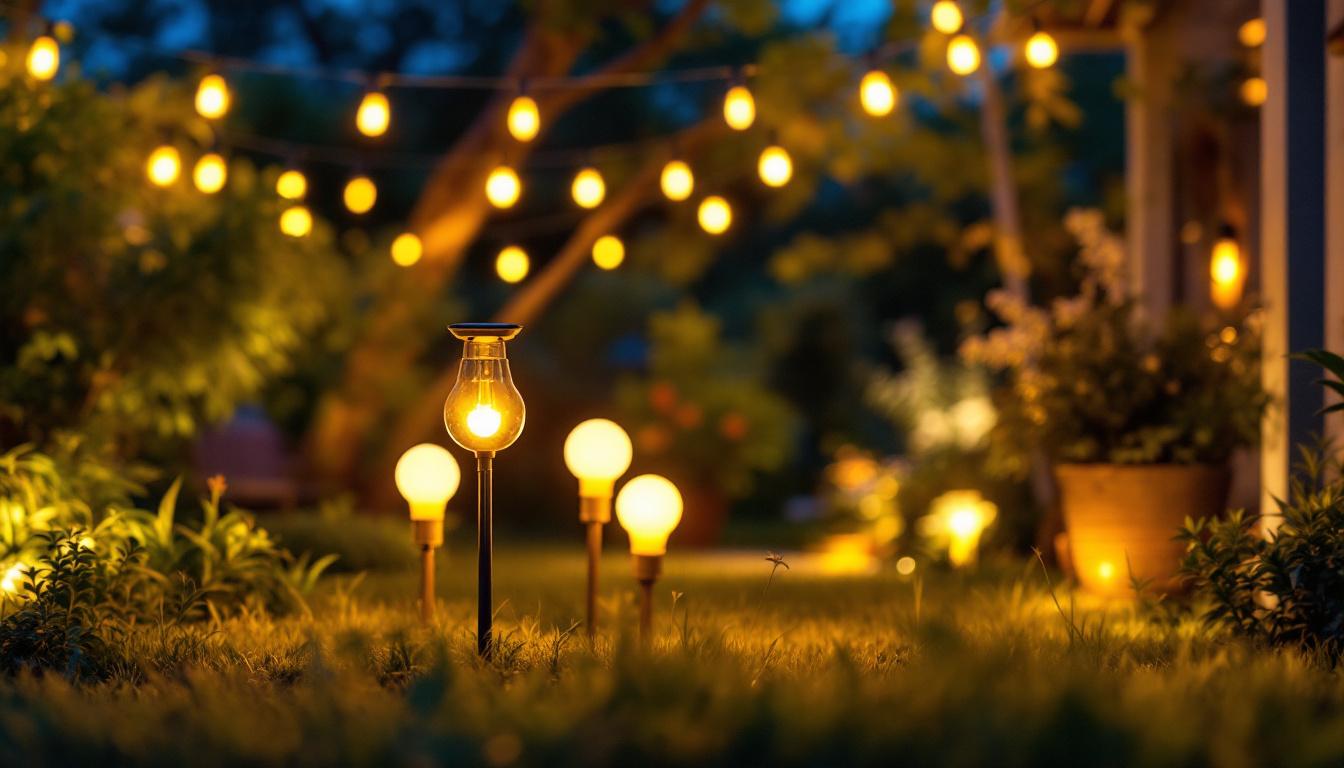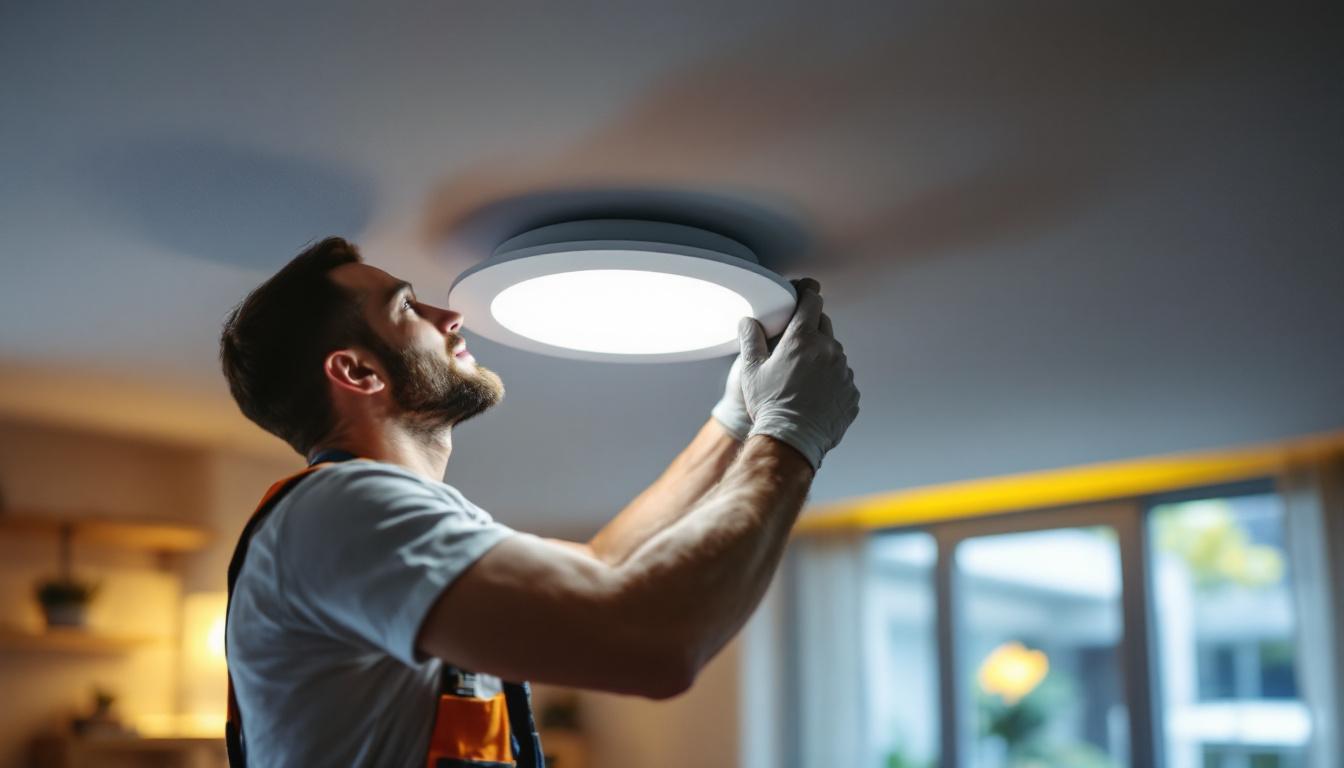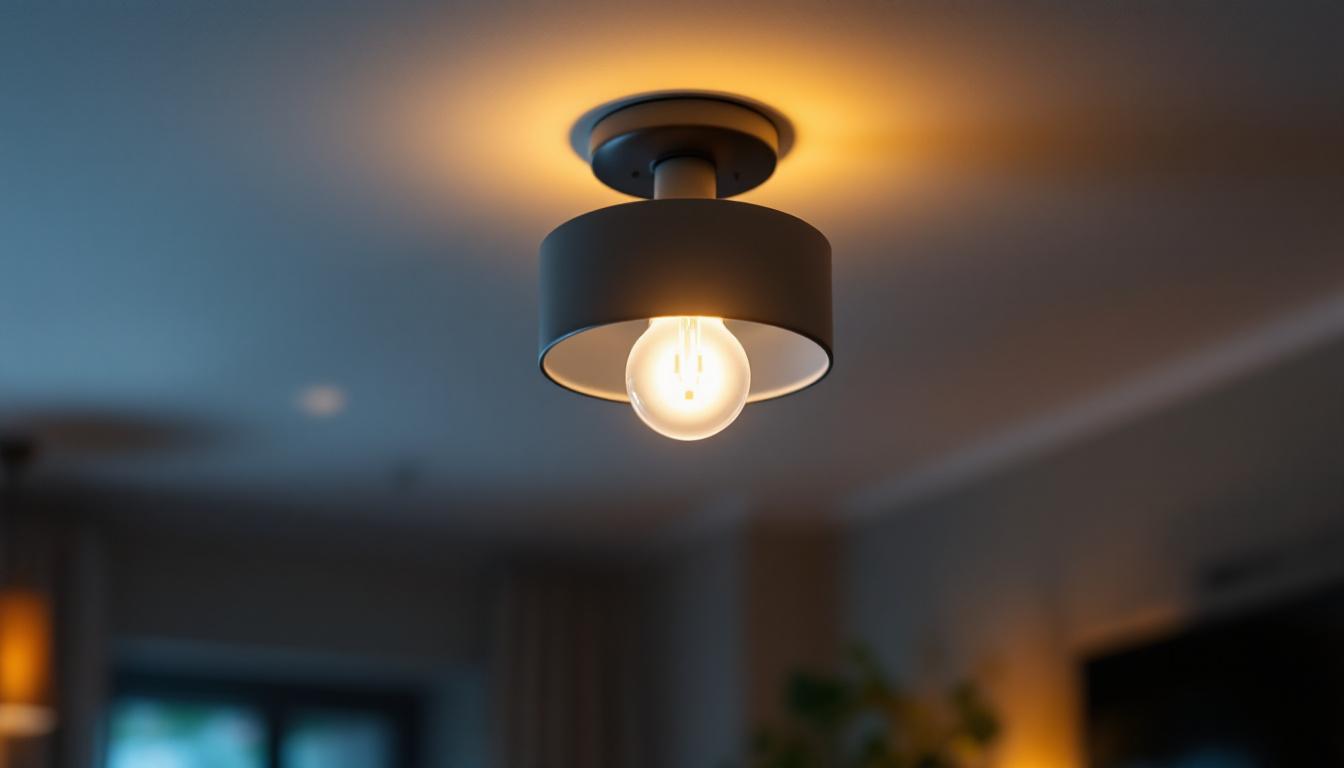
In recent years, outdoor solar lights have gained significant traction among homeowners and businesses alike. These innovative lighting solutions harness the power of the sun, offering an eco-friendly and cost-effective alternative to traditional electric lighting. For lighting contractors, understanding the nuances of solar technology is essential to providing clients with the best options tailored to their needs.
Solar lights come in various styles and functionalities, making them suitable for a wide range of applications. From illuminating pathways to enhancing garden aesthetics, these lights can transform outdoor spaces while reducing energy costs. This article delves into the approaches that lighting contractors can adopt to effectively integrate light bulb outdoor solar lights into their projects.
One of the most appealing aspects of solar lighting is its versatility. Available in designs ranging from sleek modern fixtures to charming vintage lanterns, solar lights can complement any architectural style or landscaping theme. Furthermore, advancements in solar technology have led to improved efficiency and battery life, allowing these lights to provide reliable illumination even on cloudy days or during the winter months. For contractors, this means they can confidently recommend solar solutions to clients in various climates and settings, ensuring that outdoor spaces remain beautifully lit year-round.
Additionally, the installation process for solar lights is often simpler and less invasive than traditional electrical lighting systems. Without the need for extensive wiring or trenching, contractors can save time and reduce labor costs, making solar installations an attractive option for both residential and commercial projects. Moreover, many solar lights are designed for easy DIY installation, empowering homeowners to take part in enhancing their outdoor environments. This ease of use can be a significant selling point for contractors looking to promote sustainable lighting options to their clients.
Before diving into the practical applications of solar lights, it is crucial to grasp the underlying technology. Solar lights primarily consist of photovoltaic cells, batteries, and LED bulbs. The photovoltaic cells capture sunlight during the day, converting it into electricity, which is then stored in batteries for nighttime use. This process not only harnesses a renewable energy source but also reduces reliance on fossil fuels, contributing to a more sustainable future.
One of the key advantages of solar lights is their independence from the electrical grid. This not only makes installation simpler but also allows for greater flexibility in placement. However, it is essential for contractors to assess the specific needs of each project to ensure optimal performance. Factors such as geographic location, seasonal sunlight variations, and the intended use of the lights can all influence the effectiveness of solar lighting solutions.
Understanding the components of solar lights is vital for contractors aiming to provide effective solutions. The main elements include:
There are several types of solar lights available, each designed for specific applications. Some common types include:
For lighting contractors, promoting solar lighting solutions comes with a myriad of benefits. Not only do these lights appeal to environmentally conscious clients, but they also provide practical advantages that can enhance project outcomes.
One of the most compelling reasons to recommend solar lights is their cost-effectiveness. While the initial investment may be higher than traditional lighting, the long-term savings on electricity bills and maintenance costs are significant. Additionally, many solar lights require minimal installation effort, reducing labor costs.
As sustainability becomes a priority for many clients, solar lights present an eco-friendly option. By utilizing renewable energy, contractors can help clients reduce their carbon footprint. This aligns with global efforts to combat climate change and promotes a positive image for the contractor’s business.
Solar lights can be installed in various locations without the need for extensive wiring. This flexibility allows contractors to adapt to different landscapes and client preferences. Whether it’s a residential garden or a commercial parking lot, solar lights can be tailored to fit the specific requirements of the project.
While solar lights offer numerous advantages, proper installation is crucial for maximizing their effectiveness. Contractors must consider several factors to ensure optimal performance and longevity of the lights.
Before installation, conducting a thorough site assessment is essential. Factors such as sunlight exposure, landscape features, and potential obstructions should be evaluated. Ideally, solar lights should be placed in areas that receive direct sunlight for a significant portion of the day to ensure adequate charging.
The choice of battery can greatly influence the performance of solar lights. Lithium-ion batteries are often preferred for their longevity and efficiency compared to traditional lead-acid batteries. Contractors should consider the specific requirements of the project when selecting batteries to ensure optimal performance.
Strategic placement of solar lights can enhance both functionality and aesthetics. For example, pathway lights should be spaced evenly to provide consistent illumination, while decorative lights can be arranged to create a visually appealing atmosphere. Understanding the client’s vision for the space can help contractors make informed placement decisions.
Although solar lights require less maintenance than traditional lighting, some upkeep is necessary to ensure they function optimally over time. Educating clients about maintenance practices can enhance their satisfaction and prolong the life of the lights.
Dust, dirt, and debris can accumulate on the solar panels, reducing their efficiency. Regular cleaning of the panels is essential to ensure they receive maximum sunlight. Contractors can advise clients on simple cleaning methods, such as using a damp cloth to wipe the panels periodically.
Over time, batteries may lose their ability to hold a charge. Contractors should inform clients about the lifespan of the batteries and the signs indicating they may need replacement. Regularly checking the batteries can prevent unexpected outages and ensure consistent lighting.
The solar lighting industry is continually evolving, with new technologies and trends emerging regularly. Staying informed about these innovations can help contractors offer cutting-edge solutions to their clients.
Smart solar lights are gaining popularity due to their advanced features, such as motion sensors and remote control capabilities. These lights can enhance security and convenience, making them an attractive option for clients seeking modern solutions. Contractors should consider integrating smart technology into their offerings to meet the demands of tech-savvy customers.
Municipalities are increasingly adopting solar-powered LED street lights as a sustainable alternative to traditional street lighting. These lights not only reduce energy costs but also contribute to improved public safety. Contractors can explore opportunities to partner with local governments to provide solar street lighting solutions.
Customization is becoming a key trend in solar lighting. Clients often seek unique designs that align with their aesthetic preferences. Contractors can differentiate themselves by offering customizable solar lighting options, allowing clients to choose colors, styles, and functionalities that suit their specific needs.
While solar lights present numerous benefits, contractors may encounter challenges during installation and maintenance. Addressing these challenges proactively can lead to successful project outcomes and satisfied clients.
Weather conditions can impact the performance of solar lights. In regions with prolonged cloudy weather or heavy snowfall, solar lights may struggle to charge adequately. Contractors can recommend solar lights with higher efficiency ratings or suggest supplemental charging options to ensure consistent performance.
Despite the long-term savings, the initial cost of solar lights can be a barrier for some clients. Contractors can alleviate this concern by presenting a detailed cost-benefit analysis, highlighting the potential savings over time. Additionally, exploring financing options or incentives can make solar lighting more accessible to clients.
Light bulb outdoor solar lights represent a significant advancement in the field of outdoor lighting. For lighting contractors, embracing this technology can lead to enhanced project offerings and increased client satisfaction. By understanding the components, benefits, and installation considerations of solar lights, contractors can position themselves as knowledgeable experts in the field.
As the demand for sustainable and cost-effective lighting solutions continues to grow, contractors who adapt to these trends will find themselves at the forefront of the industry. By staying informed about innovations and addressing potential challenges, lighting contractors can successfully integrate solar lighting into their projects, providing clients with beautiful, functional, and eco-friendly outdoor spaces.
Ready to elevate your lighting projects with the latest in solar technology? At LumenWholesale, we provide lighting contractors like you with the highest quality, spec-grade outdoor solar lights at unbeatable wholesale prices. Say goodbye to local distributor markups and hello to a vast selection of reliable, high-performance lighting that meets the most rigorous industry standards. With the convenience of free shipping on bulk orders, you can ensure your projects shine with premium lighting solutions at the best value. Don’t compromise on quality or cost—choose LumenWholesale for all your lighting needs. Explore our wholesale lighting options now.

Discover the key factors that distinguish top lighting contractors when it comes to LED retrofit recessed lights.

Discover why LED garage ceiling lights are a game-changer for lighting contractors.

Discover how adding motion detectors to outdoor lights can revolutionize efficiency for lighting contractors.

Discover how a ceiling light with receptacle can boost your lighting projects—maximize efficiency, safety, and customer satisfaction. Learn expert tips today!.